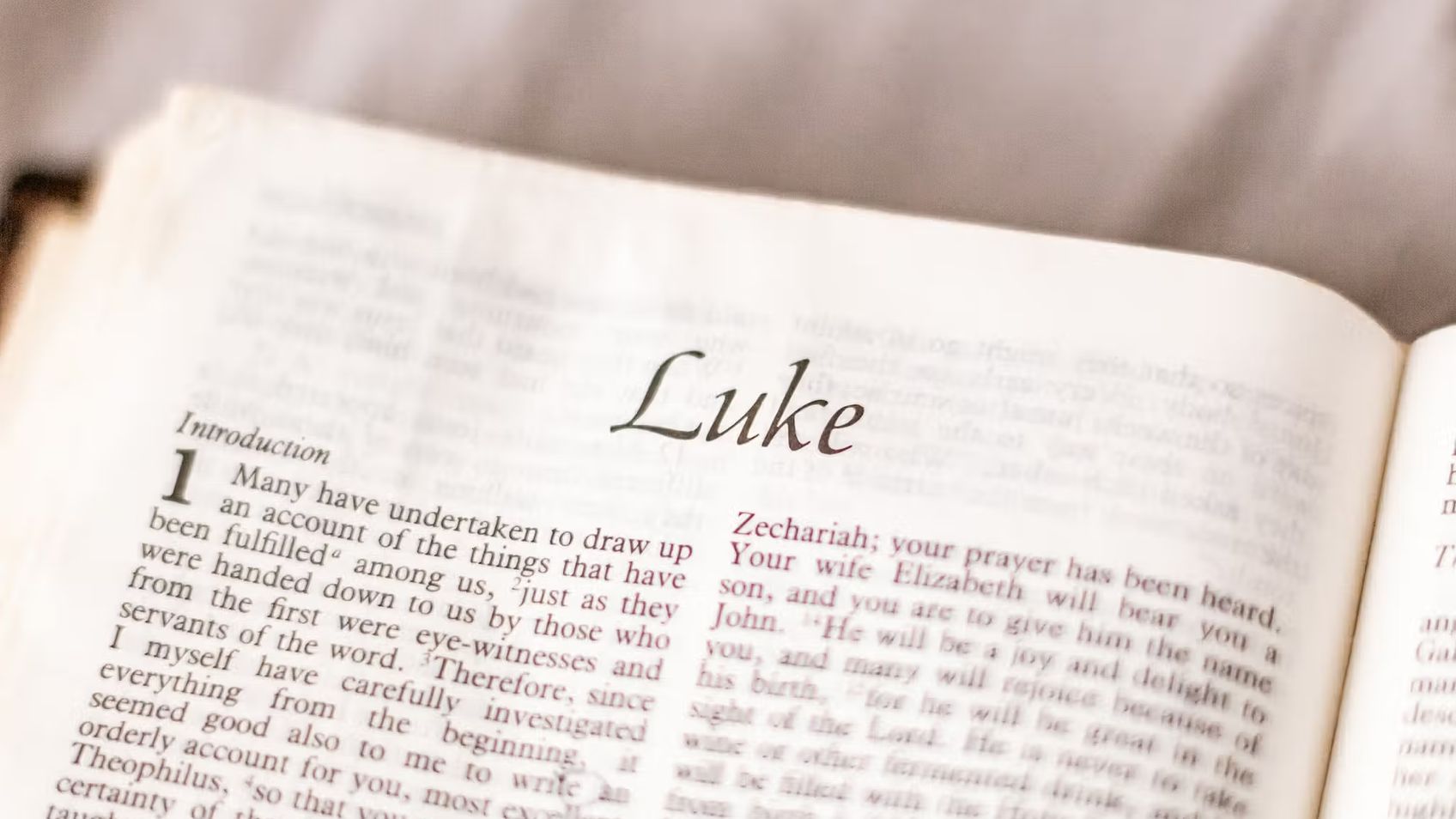More from Gospel of Luke
27 of 32

Next in this series
Luke 20:20 - 20:47
Gospel of Luke
In this discussion, Steve Gregg explores Luke 20:20-47 and the topic of paying taxes to Caesar. Gregg explains how Jesus skillfully navigated the ques
28 of 32

Luke 21
Gospel of Luke
In this discourse, Steve Gregg delves into Luke chapter 21 and discusses the controversial passage that references the destruction of the Temple. He a
25 of 32

Luke 18:24 - 19:27
Gospel of Luke
In this segment, Steve Gregg analyzes Luke 18:24-19:27, discussing various topics such as how people may turn to Christianity when going through diffi
Series by Steve Gregg

Ezra
Steve Gregg teaches verse by verse through the book of Ezra, providing historical context, insights, and commentary on the challenges faced by the Jew

Spiritual Warfare
In "Spiritual Warfare," Steve Gregg explores the tactics of the devil, the methods to resist Satan's devices, the concept of demonic possession, and t

Three Views of Hell
Steve Gregg discusses the three different views held by Christians about Hell: the traditional view, universalism, and annihilationism. He delves into

Philippians
In this 2-part series, Steve Gregg explores the book of Philippians, encouraging listeners to find true righteousness in Christ rather than relying on

Isaiah
A thorough analysis of the book of Isaiah by Steve Gregg, covering various themes like prophecy, eschatology, and the servant songs, providing insight

The Beatitudes
Steve Gregg teaches through the Beatitudes in Jesus' Sermon on the Mount.

Knowing God
Knowing God by Steve Gregg is a 16-part series that delves into the dynamics of relationships with God, exploring the importance of walking with Him,

Ephesians
In this 10-part series, Steve Gregg provides verse by verse teachings and insights through the book of Ephesians, emphasizing themes such as submissio

Gospel of John
In this 38-part series, Steve Gregg teaches verse by verse through the Gospel of John, providing insightful analysis and exploring important themes su

Gospel of Matthew
Spanning 72 hours of teaching, Steve Gregg's verse by verse teaching through the Gospel of Matthew provides a thorough examination of Jesus' life and
More on OpenTheo

Why Do We Say Someone Was Saved on a Particular Date If It Was Part of an Eternal Plan?
#STRask
November 24, 2025
Questions about why we say someone was saved on a particular date if it was part of an eternal plan, the Roman Catholic view of the gospel vs. the Bib

Does Open-Mindedness Require Studying Other Religions Before Becoming a Christian?
#STRask
February 9, 2026
Questions about the claim that if Christians really want to be open-minded, they need to read and study other religions before committing to Christian

Can You Provide Verifiable, Non-Religious Evidence That a Supernatural Jesus Existed?
#STRask
November 10, 2025
Question about providing verifiable, non-religious evidence that a supernatural Jesus existed.
* I am an atheist and militantly anti-god-belief. Ho

Why Are So Many Christians Condemning LGB People Just Because of How They Love?
#STRask
January 15, 2026
Questions about Christians condemning LGB people just because of how they love, how God can expect someone to be celibate when others are free to marr

Could the Writers of Scripture Have Been Influenced by Their Fallen Nature?
#STRask
October 23, 2025
Questions about whether or not it’s reasonable to worry that some of our current doctrines were influenced by the fallen nature of the apostles, and h

Why Is It Necessary to Believe Jesus Is God?
#STRask
February 19, 2026
Questions about why it’s necessary to believe Jesus is God, whether belief in the Trinity is required for salvation, and why one has to believe in the

Protestants and Catholics: What’s the Difference? With Chad Van Dixhoorn, Blair Smith, and Mark McDowell
Life and Books and Everything
November 26, 2025
How should Protestants think about the Catholic Mass? About the Eucharist? About the history and development of the papacy? In this panel discussion,

Why Does the Bible Teach You How to Be a Proper Slave Owner?
#STRask
November 13, 2025
Question about why it seems like the Bible teaches you how to be a proper slave owner rather than than saying, “Stop it. Give them freedom.”
* It s

Sense, Sensibility, and Adam Smith with Jan Van Vliet
Life and Books and Everything
February 16, 2026
This year is a special anniversary for the United States as Americans celebrate 250 years of independence. But 1776 was an important year in more ways

What Is Wrong with Wokeness? With Neil Shenvi
Life and Books and Everything
January 19, 2026
In this timely interview, Kevin talks to Neil Shenvi about his new book (co-authored with Pat Sawyer), entitled “Post Woke: Asserting a Biblical Visio

Are Demon Possessions and Exorcisms in the New Testament Literal?
#STRask
December 11, 2025
Questions about whether references to demon possessions and exorcisms in the New Testament are literal, how to talk to young children about ghosts, an

Kingdom Priorities: Following the Teachings of Jesus
Knight & Rose Show
February 14, 2026
Wintery Knight and Desert Rose discuss Jesus' teachings from the Gospels, emphasizing truth, evidence, self-denial, and forgiveness. They explore pass

How Do We Advocate for Christian Policy Without Making the Government Interfere in Every Area of Life?
#STRask
November 20, 2025
Questions about how to advocate for Christian policy without making the government interfere in every area of life, and the differences between the mo

How Can I Explain Modesty to My Daughter?
#STRask
November 27, 2025
Questions about how to explain modesty to a nine-year-old in a way that won’t cause shame about her body, and when and how to tell a child about a pre

What About Those Who Never Heard the Name of Jesus?
#STRask
December 22, 2025
Questions about what will happen to those who never heard of Jesus or were brought up in a different faith, whether there’s biblical warrant to think

